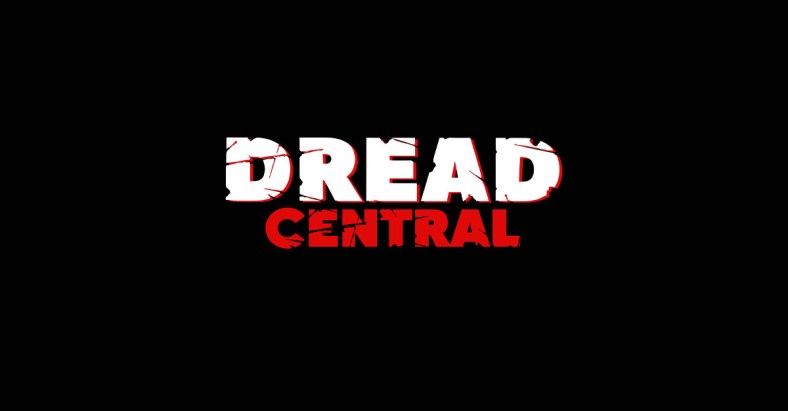Fantastic Fest 2019: SAINT MAUD Review – An Anointed Descent Into Madness
Starring Jennifer Ehle, Morfydd Clark, Turlough Convery
Written by Rose Glass
Directed by Rose Glass

Finally, a film for those of us who found Joan of Arc’s claims of godly guidance to be horrifying.
Rose Glass busts out of the gate with a thrilling debut in Saint Maud, a powerhouse rumination on righteousness and the thin line between piety and fanaticism. Clocking in at a refreshingly tight 82 minutes, the story begins as a quiet portrait of a troubled outcast and ends with one of the greatest final shots of 2019.
Glass’s first feature explores a common archetype: the born-again convert. In fiction and real life, such characters often go through untold amounts of personal anguish and as such, their newly found faith that got them through said pain is unshakeable. Young nurse Maud (Morfydd Clark) is a fresh catch for the Catholic faith, having recently recovered from a vague but tragic incident with her previous patient. She is now a private caregiver for former dancer Amanda (Jennifer Ehle), who is in the final stages of lymphoma. Between Maud’s virtue and Amanda’s acerbic devil-may-care spirit, trouble quickly brews in the unnamed seaside town as the wispy caretaker becomes obsessed with saving her patient’s soul.
There is not enough that can be said for Rose Glass’ command of tone. Saint Maud‘s palettes feature muted earth hues, fittingly monastic in their simplicity. The shadowplay is dramatic and often places Maud in an ominous, half-hidden position. The religious themes nestled within such an aesthetic make it easy to compare any frame to a Caravaggio painting. Adam Janota Bzowski’s score puts cacophony in all the right places while applying silence with intent and purpose. The score enhances, and never distracts. Glass’ love for low-and-slow dread makes for a meticulous pace that rewards the viewers’ patience with dizzying sequences from the second act onward that recall the raw feminine energy of last year’s Suspiria. Only one jump scare occurs in the entire film, and it fires for effect in a scene that’s already emotionally taut to begin with.
Maud is an unreliable narrator, through whom we get a hefty hit of moral relativism. The young woman is, at times, a good person practicing unethical care; at other times she is an unstable zealot who occasionally happens to provide the comfort she’s called to give. For every major incident in her life, there is a pervasive sense of implausibility; colors become richer, sounds become more pronounced, movements are balletic. So when the nurse collapses onto her kitchen floor in a fit before suddenly levitating, the director’s subtle, consistent delineation between layers of reality make it easy to tell when we’re witnessing the world as Maud experiences it, and all without resorting to egregious POV shots. And if that much is still too ambiguous, the final seconds of the film underline the genre with a blood-red pen: Saint Maud is a horror movie. Not a “social thriller,” not a “dark drama,” or any other hand-wringing term from those who can’t dismount from their high and noble cinephile horse. That said, Maud’s disgust with the everyday world and her sudden change in the way she perceives that world builds to a bonkers ending that fits nicely within Paul Schrader’s definition of the transcendental style. The First Reformed comparison can be made, and it’s a double feature I’d like to see.
Morfydd Clark is a force of nature (or the hand of God, if it pleases), hitting the highs of divine euphoria and the lows of social numbness without breaking a sweat. She puts her suffering to good use with an updated twist on self-flagellation, all to bring her closer to God. Every moment shared with her is another tick of the meter building towards a blowout that, looking back, was tragically unavoidable. Channeling both Carrie‘s Carrie White and Taxi Driver‘s Travis Bickle in the same arc is no small feat, and Clark deserves all of the praise that comes her way and more.
Jennifer Ehle’s Amanda tackles her own duality; one of despair at her lost vitality, the other of mocking condescension at her caregiver’s earnest efforts to save her. They tag-team against each other in a Whatever Happened To Baby Jane?-esque battle of endurance, each wrestling with her own demons while provoking a reaction out of the other. At no point does it slip into any tired jealousy tropes; the wonders of having a woman at the film’s helm. Through it all, each character taps into an underlying empathy that still keeps the viewer at an arm’s length; neither one wants your pity.
Saint Maud is a forseeable but ticking time-bomb, played in a minor key until all Hell breaks loose. Rose Glass has set the bar high for herself, but I don’t mind worshipping an idol as provocative as this one.
-
SAINT MAUD
Summary
Saint Maud is sanctimony made monstrous, complete with Possession-level freakouts and an ending for the ages. A powerful flex for first-time filmmaker Rose Glass.
Categorized: Reviews
